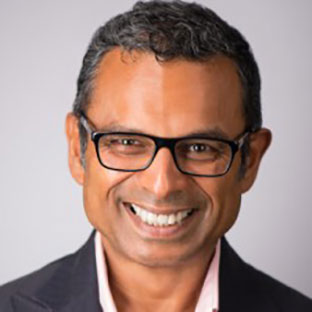The biggest killer of men in the UK under 45 is suicide. As Men’s Health Week comes to a close, Kenny Mammarella-D’Cruz FRSA, who has worked with men for almost 30 years, explores why so many men do not access help and what could be done.
According to the Office of National Statistics, although suicide levels have reduced since the1980s and 90s, in 2017, 5,821 people took their own lives; men have consistently accounted for around three quarters of these deaths. One in four men have thought about taking their own life and over 40% of men suffer in silence, never sharing their feelings.
Since setting up a men’s group almost two decades ago, I have noticed a big increase in mental health problems. While there is increased attention being given to toxic masculinity and the #metoo movement has enabled more women to share their experiences of abuse, many men still struggle to speak about their needs and feelings. Many do not have a sense of who they really are, their core needs, passions, purpose, or even their perspectives on life.
A resistance to seeking traditional professional help has devastating consequences for these men, their families, friends and communities. This impact can pass down from generation to generation; men who do not know how to express their true feelings are unable to pass those life skills on to their boys and young men.
How come so many men do not talk about what is really going on? I put these questions to the audience at a recent RSA talk I gave. The responses echoed the themes I have encountered over the years, including a cultural bias, that emphasises the bad things that are perpetrated by males and minimises the good (the Male Psychology Network calls this the Gamma Bias).
Another recurrent theme is the fear of humiliation and abandonment. Some men are ruled by guilt for what they have done wrong, what others say they have done wrong and for what they have not been able to put right. Many exist in ‘survival mode’and will do anything to avoid abandonment, humiliation and losing their place in the pecking order. All of this can operate on a deeply unconscious level and men often override their feminine responsive side and get addicted to reacting to life in panic and fear. Unruly testosterone and misunderstood male hormones can enslave a man to an attitude that life is unsafe, and that he is constantly under attack. Most importantly, men cannot bare their feelings with those around them. Instead, they second-guess, step forward and fix, or step back silently.
Another common theme is that no one is listening. Sadly, these days, many men do not have male friends and even amongst those who do, many consider it to be a huge risk to speak truthfully about emotions. People also need to feel they belong. If a man starts speaking honestly and questioning the status quo, it can be a perceived as a threat to family and friends and therefore, home ground may not be fertile soil in which to plant new seeds. This begs the question of where does a man go to find out who he is and who he no longer needs to be?
This links to another theme; the concern men have about betraying their family and father. Every family has a family culture, ‘scripts’ that they often repeat, illnesses and causes of death that seem to be handed down from generation to generation. But I wonder whether what is really handed down are the family suppressions, anxieties and belief systems, that turn into emotional, mental, physical and social health issues? Many men have difficulty opening up because they have not had men in their lives who were capable of modelling emotional intelligence for them.
So how can we challenge, change and empower our fathers, brothers, sons, friends and society, so that all voices are heard, and healthy men and boys are enabled to contribute to their communities? Three approaches come to mind.
The first is to speak with other men. Support groups and therapy are stereotypically perceived to be for severely distressed people, and therefore men are less likely to attend them and more likely to attend men’s groups. They provide a space for men to listen and talk in a non-hierarchical and safe space and where a peer-to-peer approach can empower men and enable them to empower others.
At my own online and face-to-face MenSpeak men’s groups, we hold a space of equality, encouraging peer-to-peer support, where men can safely speak in their own language without running the risk of someone trying to save, smother or censor them. MenSpeak aims to make men's groups as freely available and accessible as twelve-step mutual support groups such as Alcoholics Anonymous and to prevent mental health issues the associated costs to individuals and services. It provides training for people to hold men’s groups in their own communities.
It is a space where a man’s grunts and mumbles are welcome and understood; a space where ‘male’ means growing with consciousness and authenticity, rather than being subject to masculine or feminine judgments and restrictions. In this context men are more than happy to express ‘unmanly’ emotions such as fear, grief, sadness, helplessness and loneliness.
The second approach is to know yourself. I have found the most efficient first step is to set aside notions of blame and to accept the facts. The next step is to set aside the logical stories we have grown to believe and to explore our own emotional journey. It is important for us all to feel our feelings and then allow the pain to pass, rather than avoiding the pain and thinking about how to ‘perform’ feeling. Some men get addicted to their rageful/aggressive/helpless feelings. Others avoid these by getting high either with gushing over-enthusiasm or with drugs, while some avoid them by getting low with depression or with alcohol. Sadly many men withdraw, think crazy thoughts and move towards suicide.
Normally, there are many conflicting and confusing voices in our inner worlds. Most of us can usually identify with one or more sub-personalities – our so-called ‘primary selves’ – often to the exclusion of other, important sub-personalities. One of the most powerful tools that I use is called Voice Dialogue, a method that allows people to come into dialogue with the inner voices that belong to the various parts of their personality. Whether we refer to it as our vulnerable self or inner child, every one of us has a part inside, which feels and expresses emotions. More and more men are learning to take care of the fearful little boy inside, rather than sending it out into the world to do a man’s job.
The third approach is to emerge from ‘survival mode’. One of my favourite ground rules is to encourage men to use language that is authentic and empowering, rather than that disowns and disempowers. I also encourage them to not overthink things. Little, if anything, about life is ever worked out in the head. Part of this is about living beyond the rules. Playing small, in order to be ‘safe’ or ‘liked’, will probably keep you small and stuck. Exploring the edge of your comfort zone is likely to bring challenges and help you grow.
Kenny Mammeralla D’Cruz is a personal development consultant who helps men (and women) achieve their life, relationship and career goals.
Related articles
-
Opening up in lockdown
Kenny Mammarella-D'Cruz FRSA
Kenny Mammarella-D'Cruz FRSA on why the Covid-19 pandemic prompted him to create online men’s groups.


Join the discussion
Comments
Please login to post a comment or reply
Don't have an account? Click here to register.
This is really well put together, thanks Kenny.